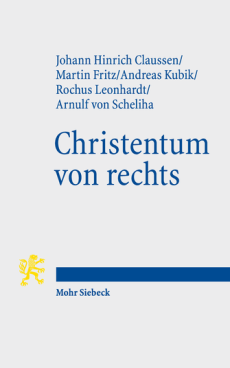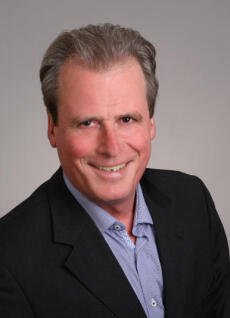Right-wing Christians exploit theology for their own ideas of the social order
According to researchers, the new right uses writings such as those of Dietrich Bonhoeffer for their own purposes – Theologian Arnulf von Scheliha sees recourse to outdated theological positions – “We must also oppose such appropriations on the day of remembrance for the victims of National Socialism on 27 January” – Right-wing view of Muslims tainted with “envy of their tradition”

Press release 25 January 2022
According to research, new right-wing Christians are using theological ideas such as those of the pastor and Nazi resistance fighter Dietrich Bonhoeffer to bolster their political positions. “In this way, they legitimize their striving for an anti-plural social order that they claim used to exist in earlier epochs. But this order never in fact existed. That such religious notions are prevalent in right-wing politics has received little attention so far”, says social ethicist and Protestant theologian Prof. Dr. Arnulf von Scheliha from the University of Münster’s Cluster of Excellence “Religion and Politics”. The new right constructs lines of tradition that go all the way back to Martin Luther, who himself is understood in a one-sided way. A key role is played by the thinking of national-conservative theologians such as Emanuel Hirsch (1888-1972) and Paul Althaus (1888-1966), both of whom played a disastrous role in the Weimar Republic and helped prepare the ground for National Socialism. “This is alarming and cannot go unchallenged, especially on the day of remembrance for the victims of National Socialism on 27 January. It demands that we engage self-critically with such traditions”.
Von Scheliha’s book Christianity from the Right: Theological explorations and criticism, written with Johann Hinrich Claussen, Martin Fritz, Andreas Kubik, and Rochus Leonhardt, and published by Mohr Siebeck, is intended to help such self-critical engagement with the history of Protestant theology. “New-right Christians present themselves as a bulwark against a modern, plural, and individualistic society”, von Scheliha explains, and point to theologians such as Hirsch and Althaus, who spoke up for an estate-based society and an authoritarian political regime: “For Emanuel Hirsch, for example, religion serves to bind people to the Volk, with each Volk being assigned a fixed place on earth, while Paul Althaus sees in the multiplicity of peoples a divine abundance of creation. This is how right-wing Christians justify their ethno-pluralism, which claims that people from different Volk groups should not mix”. Von Scheliha was speaking at the Cluster of Excellence’s annual theme, “Tradition(s)”, which addresses the changing nature of traditions.
New right can be observed since 2015 – includes Christian groups

As Arnulf von Scheliha explains, those on the right base their criticism of modern societies on the idea of a fixed order of creation. This has a long tradition in Protestant theology, with even the young Dietrich Bonhoeffer not being free of the idea. “Right-wing Christians are appropriating these ideas today, tearing them out of their intellectual context, and championing their relevance for the present. Besides the traditional understanding of marriage and family, these ideas include the division of society into estates and the division of people into different Volk groups, clearly distributed across the globe”. All this is ordained by God and thus immutable. The Basic Law is interpreted in a similar way: “The right reads it as the founding document of the German nation state, whose top priority is to preserve German identity and sovereignty. Basic rights are secondary”, says von Scheliha.
According to von Scheliha, the new right has been present in Germany as a variant of European right-wing populism since the influx of refugees in 2015/16, and is “the bridge between conservatism and violent right-wing extremism”. There are religious groupings within this current that also try to underpin their political opinion with theology. “In doing so, they ignore the historical context of the writings that they mention, as well as the history of learning that theology has since undergone. The new right puts forward a completely outdated theology”. This should be exposed by the proven historical, politological, and sociological methods of theology.
“Envy of Muslim tradition”
“Islam is seen by the new right as the enemy of the Christian West, which must defend itself against it”, says Arnulf von Scheliha. At the same time, the new right’s criticism of the liberal view of Christianity (a view that in their eyes is also represented by the official churches) causes a kind of envy of tradition towards Muslims, since their religion provides clear guidelines on the distribution of roles in marriage and family, as well as on the relationship between religion and politics. “Ethno-pluralism can therefore gain something from more traditional ideas of society in other cultures. But this should not be confused with tolerance”. It is crucial for the right that peoples and religions do not mix: “Migration is seen as a violation of the order of creation. Human rights are undermined in favour of a nationalist idea of the state, giving rise to crude notions of the enemy”. However, unlike with the old right, hegemonic questions are not currently playing a significant role; they have been replaced by the concept of ethno-pluralism.
Arnulf von Scheliha also sees a certain coalition of the new right among Catholics and Protestants, a coalition fed by criticism of modernity and Islamophobia. “Right-wing Catholics reject, for example, the Second Vatican Council, which modernized the Catholic Church in the 1960s, and advocate the Latin Mass. Protestant Christians draw on the conservative side of Martin Luther”. As for the image of history that the new right has: “They are oriented towards an idealized understanding of the Middle Ages and the authoritarian structures of the empire in the 19th century, which realized the true German nation state. But they ignore the antagonistic forces in society at the time, including in particular the gap between wealthy citizens and impoverished workers, and also the confessional antithesis between Protestants and Catholics”.
Arnulf von Scheliha recommends debate when it comes to dealing with right-wing Christians. “There is no universally valid authority that decides what is Christian and what is not”, he says. “This can only happen if we also deal critically with theological positions that we thought had been overcome. Academic theology has to confront their renaissance”. (apo/vvm)

